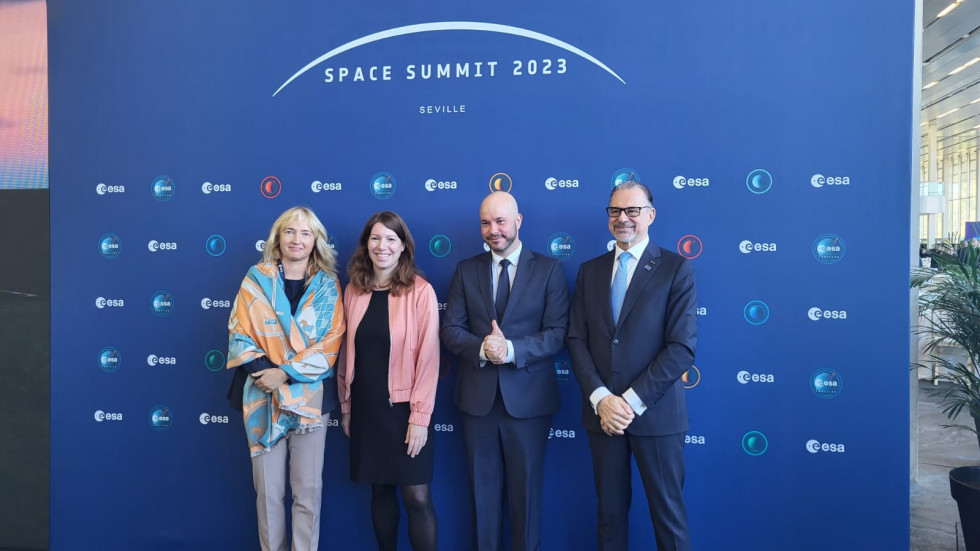Slovenia formally applies for full membership of the European Space Agency
This step marks the beginning of an approximately one-year period when the ESA authorities and working bodies will examine Slovenia's readiness for full membership. With the adoption of the Slovenian Space Strategy last week, Slovenia fulfilled the final formal step before submitting its application for membership. The final decision on membership will be made by the ESA Council in 2024.
"With the adoption of the Slovenian space strategy, we are fulfilling the final milestone necessary for the initiation of formal procedures for full membership of the European Space Agency. It opens up opportunities for Slovenia to accelerate the development of our space sector. This is not only an opportunity to strengthen space research but also to develop breakthrough innovations that can revitalise the Slovenian economy," stressed State Secretary Frangež.
In recent years, Slovenia has built a promising space sector consisting of more than 40 small and medium-sized enterprises. They managed to take a leading role in individual niche space areas, especially in the field of Earth observation, the development of innovative technologies, new materials and three Slovenian satellites, including the satellite Skylabs Trisat-R, which is also an important European achievement at an orbital altitude of 6000 km above Earth. Space sector businesses represent a promising breakthrough ecosystem, and participation in ESA space programmes ensures the financing of innovation and activities in space and space applications that can be applied on Earth. Slovenia's full membership of ESA represents an opportunity to strengthen the importance of the space sector in Slovenia and to increase responsibility for joint European efforts. In ESA, the Member states consider Slovenia an excellent example of the next full member due to its successes in the space sector.
A two-day Space Summit that has kicked off today in Seville, Spain, includes four major meetings: the ESA Ministerial Council, the informal EU Competitiveness Council in the format of space ministers, the informal EU-ESA Council and a meeting with Latin American countries. The sessions will set out Europe's further space strategy with a key flagship role for the European Space Agency (ESA) in green transformation, reducing the impact of crises on Earth, Europe's leadership in reducing space debris, Europe's autonomous and independent access to space (including a vision for space transport) and developing a new vision of Europe for human and robotic research – aiming to provide adequate responses to pressing societal challenges and the state of global environment.
Two crucial documents will also be adopted. At the ESA Council meeting, ministers endorsed a resolution on a European strategy for space research, sustainability and transport to and from space. The text stresses the importance of investment in the space sector for Europe. The importance of space for the green transition and the cooperation of all key actors is highlighted. Investments in space research and the sustainability aspect of investments also play an essential role.
The meeting of the informal EU-ESA Council will also approve the Joint Declaration on the use of space to accelerate the green transition in Europe, autonomy of access to space, responsible use of space and increased commercialisation in the European space system. The content is about how to ensure a more significant contribution of space to the progress of sustainable and green ambitions of European policy and how to ensure Europe's pioneering role in protecting the Earth and the space environment for future generations.

